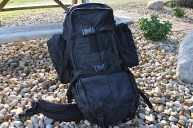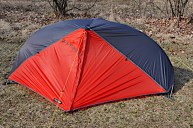The Rux seeks to be the solution for carrying and storing outdoor gear.
All outdoorsmen and women can relate with one common problem with our outdoor gear. Storing and transporting it all to the location of our next adventure. It's a pain in the butt when you just want to do a short hike or fishing trip and you must make multiple trips to the vehicle and garage just get load everything up.
It gets even more annoying when you come home at the end of a long day and must unload everything again and store it away. There's must be a better way, right?
At least that's what the folks behind the new Rux gear system believe. They recently sent me a very early prototype of the new system to check out and from what we've seen, it's slick. Read on to see more of the features of this bag/tote/container all rolled into one.
What is the Rux?
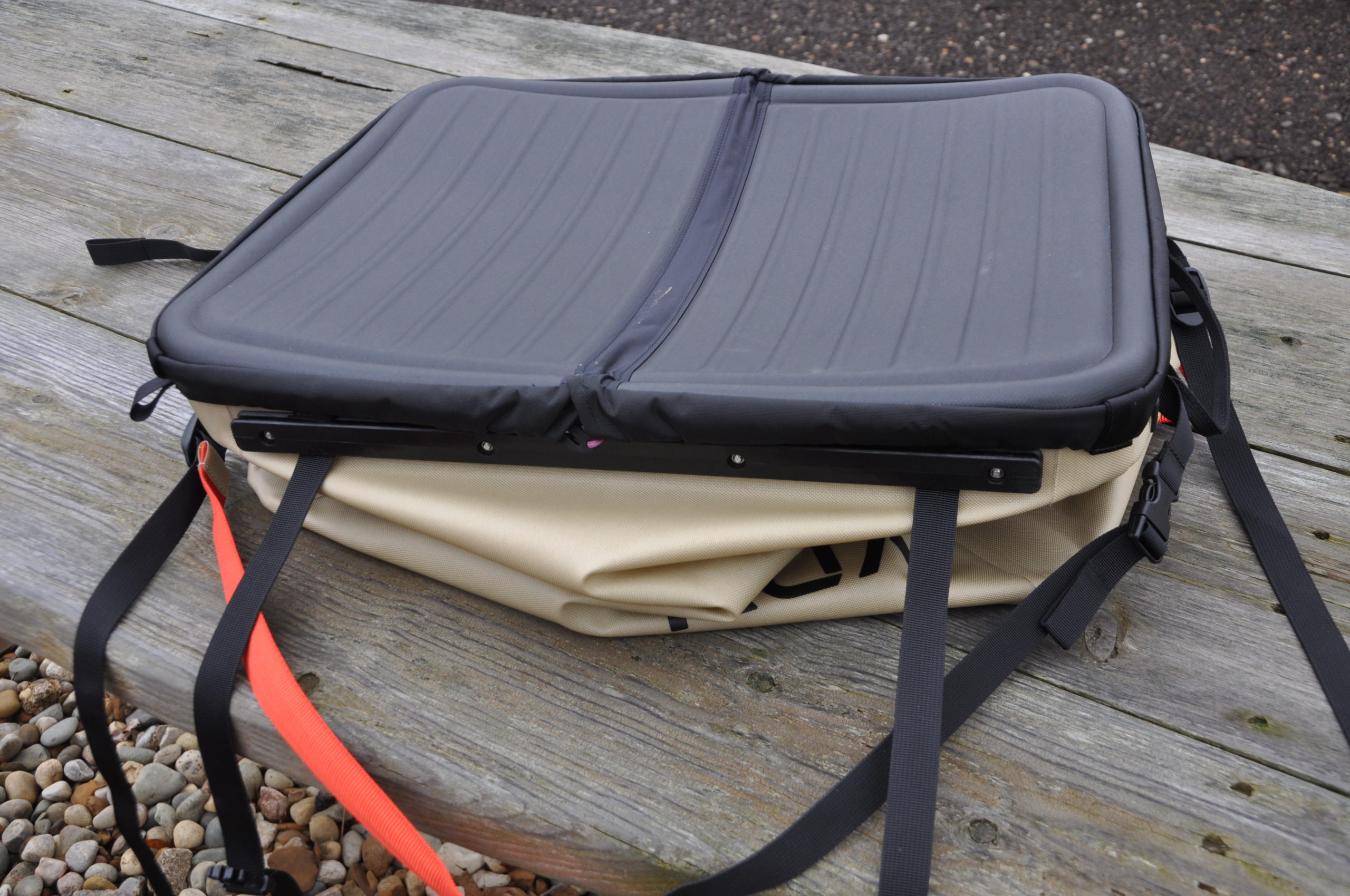
Travis Smola
The people behind the Rux are a group of climbers, mountain bikers, skiers and hikers, all of whom are like us, they own too much outdoor gear. As we already noted, one of the biggest issues with gear for those hobbies is storage and transport, especially if you're going on a big camping or road trip. It's easy to forget something or worse, misplace or lose it. The Rux team wanted a storage system that was light, roomy, durable and weatherproof like a plastic container. At the same time, they wanted it to compress down and store when not in use like a tote bag.
The team was also looking for sustainability. They are seeking a climate neutral certification once the company gets going. They note on their website that they wanted to solve some of the trash problems of traditional gear. The way they are doing that with Rux is to make the entire product able to be disassembled.
That means if a strap breaks or a buckle quits working or if a rail gets chipped, the broken pieces can be removed and fixed with replacement parts. And the broken pieces are fully recyclable, meaning less of chance of this gear winding up in a landfill at some point down the line. We dig the thinking. We are all for less waste in the outdoor spaces we all know and love.
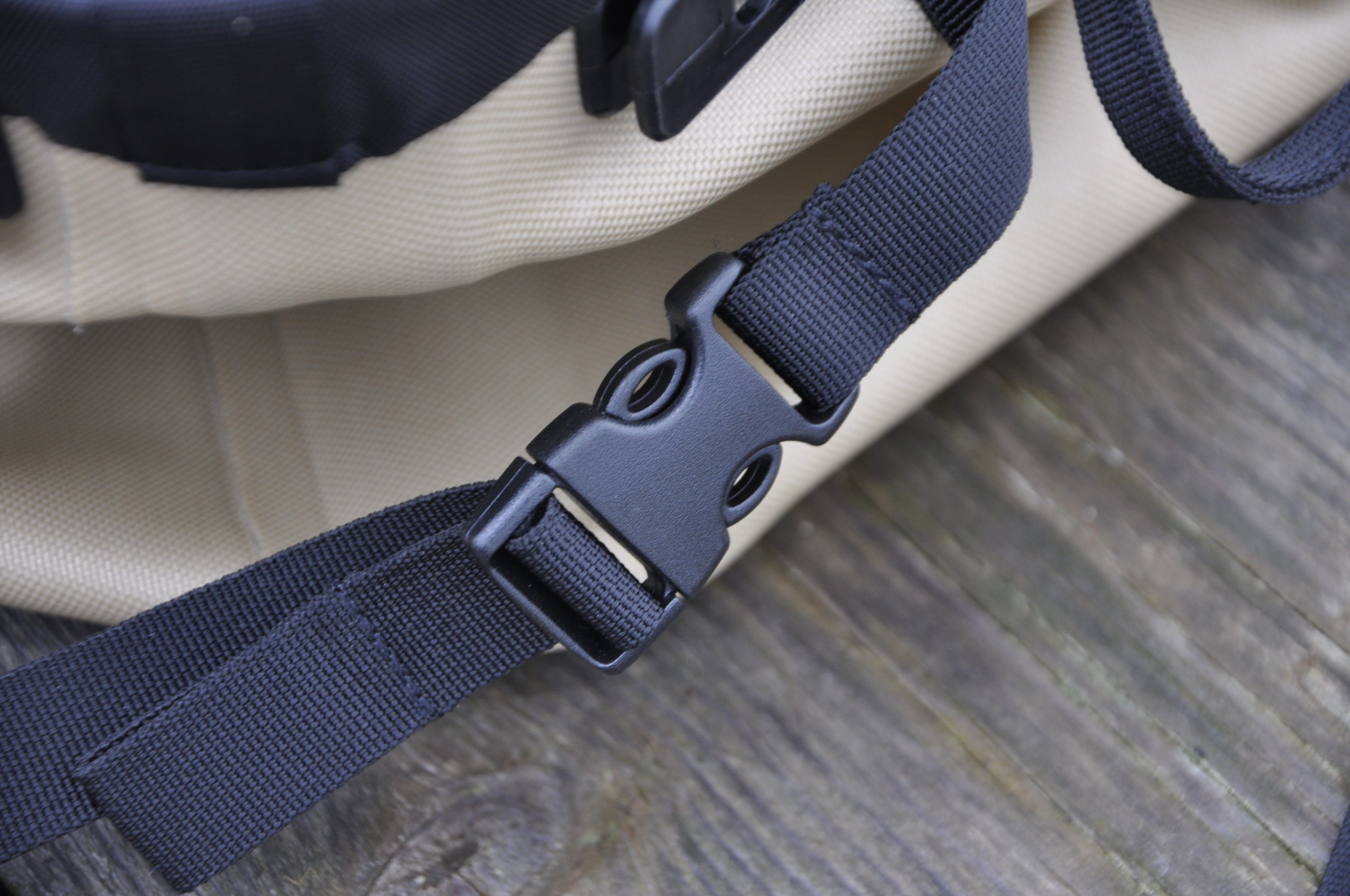
Travis Smola
The Rux consists of a bag portion that feels a little like what you may find on a reusable shopping bag. Just heavier. It's a TPU coated nylon. It feels nice and durable and they've included a clear window on one side for easy reference of what's inside. The corners of the bag pop open straight to open the Rux to its full 70 L capacity. I had a little bit of trouble with one corner staying popped open on the prototype they loaned me, but again, it's a prototype and the company is experimenting with some different materials for those corners. Honestly, it wasn't a big deal. It didn't affect the performance of the Rux in any way.
The Rux is topped off by a lid made of compressed EVA foam. The lid folds in half down the middle allowing you to access the contents without taking the whole thing off. The corners are elastic and adjustable. You can pull them tight to help keep the water out and protect sensitive pieces of equipment from damage. This lid can be further locked down by two removable straps that buckle easily together.
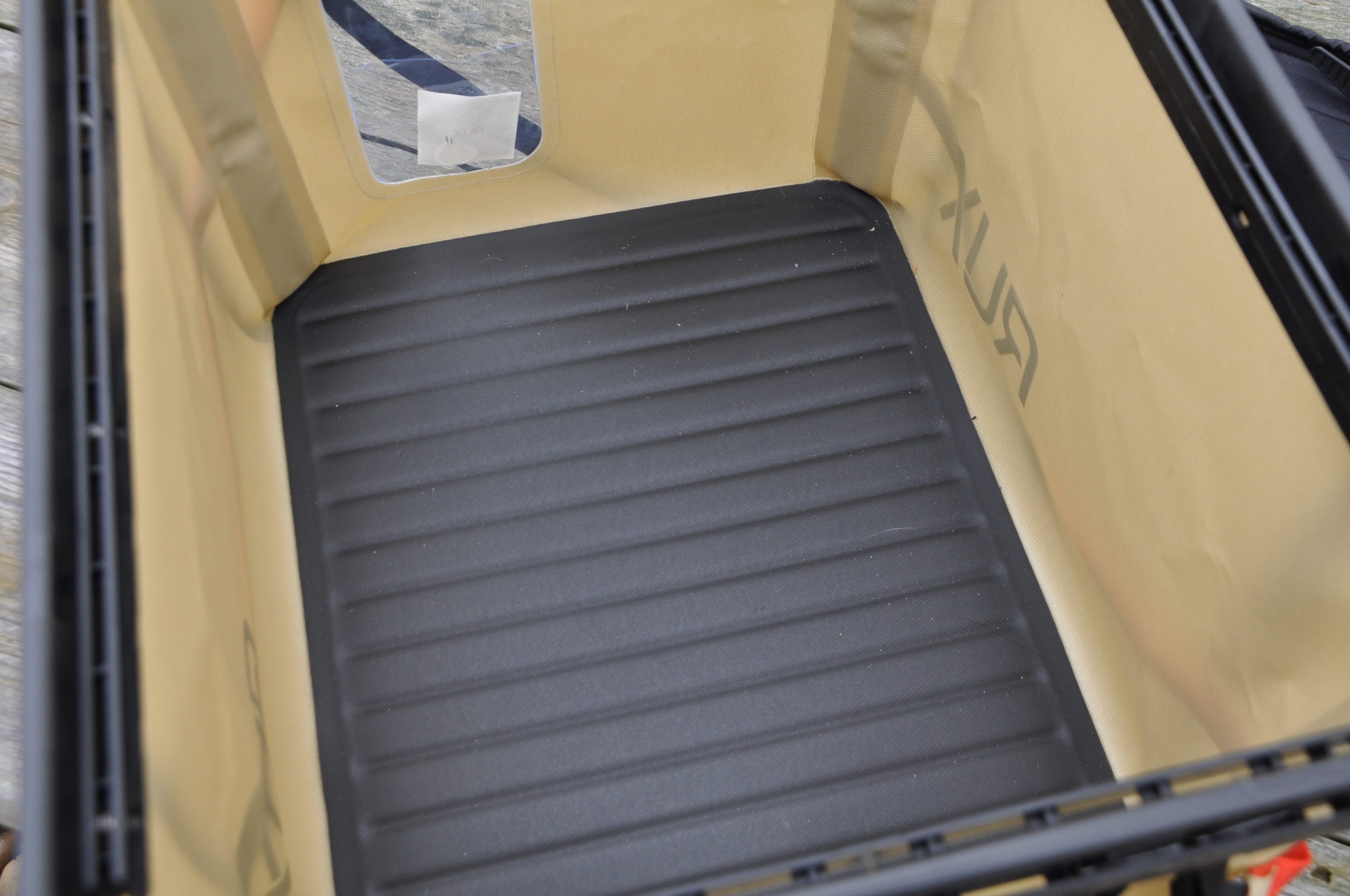
Travis Smola
The top four corners of the Rux have rails on the outside and interior that help the container maintain shape and give you a place to lash the Rux down for transport. They included a couple of simple straps to help lock it down in the bed of a pickup or perhaps the back of a UTV. Rux is also experimenting with some ideas for accessories using these rails. For instance, they have developed a removable
EDC pouch that can hold smaller items like your keys, SD cards, wallet or cell phone. They're also in the early stages of working on some slat wall hooks that fasten into the rails, allowing you to hang the Rux on a wall. No bulky shelves necessary.
Finally, the Rux features two nylon-webbed straps that can be easily attached or removed via the rails. The company is still experimenting with attachments. The prototype they loaned me had some simple attachments based on climbing technology. It's difficult to describe how it works, but it was fast and easy to attach and remove said straps.
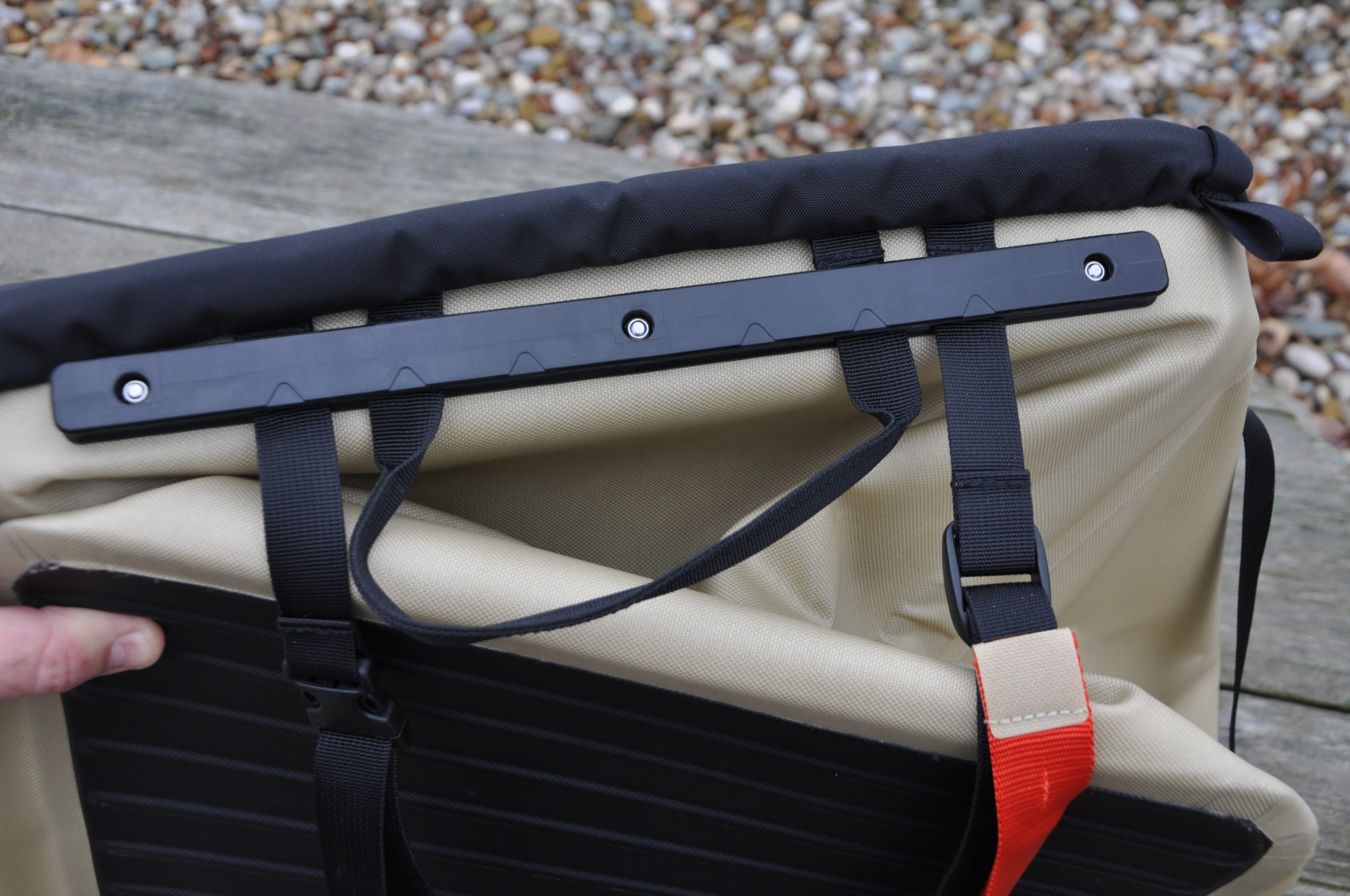
Travis Smola
These straps are then adjustable. You can use them to carry it by hand, over the shoulder as a tote or even as a backpack. Granted, it's not something you'd use for carrying long distance in backpack fashion, but if you're going from the pier to the car with your fishing gear or from your campsite to the RV, it's quick and easy to use. That will also free up your hands to carry other things.
The Rux also has some simple removable hand straps on the side that I was able to pop off and re-attach in just seconds. We love the simplicity of all the straps and handles. Even a child could change these things out if they wanted. Yet, at the same time, they feel incredibly sturdy.
But how does it tote gear?
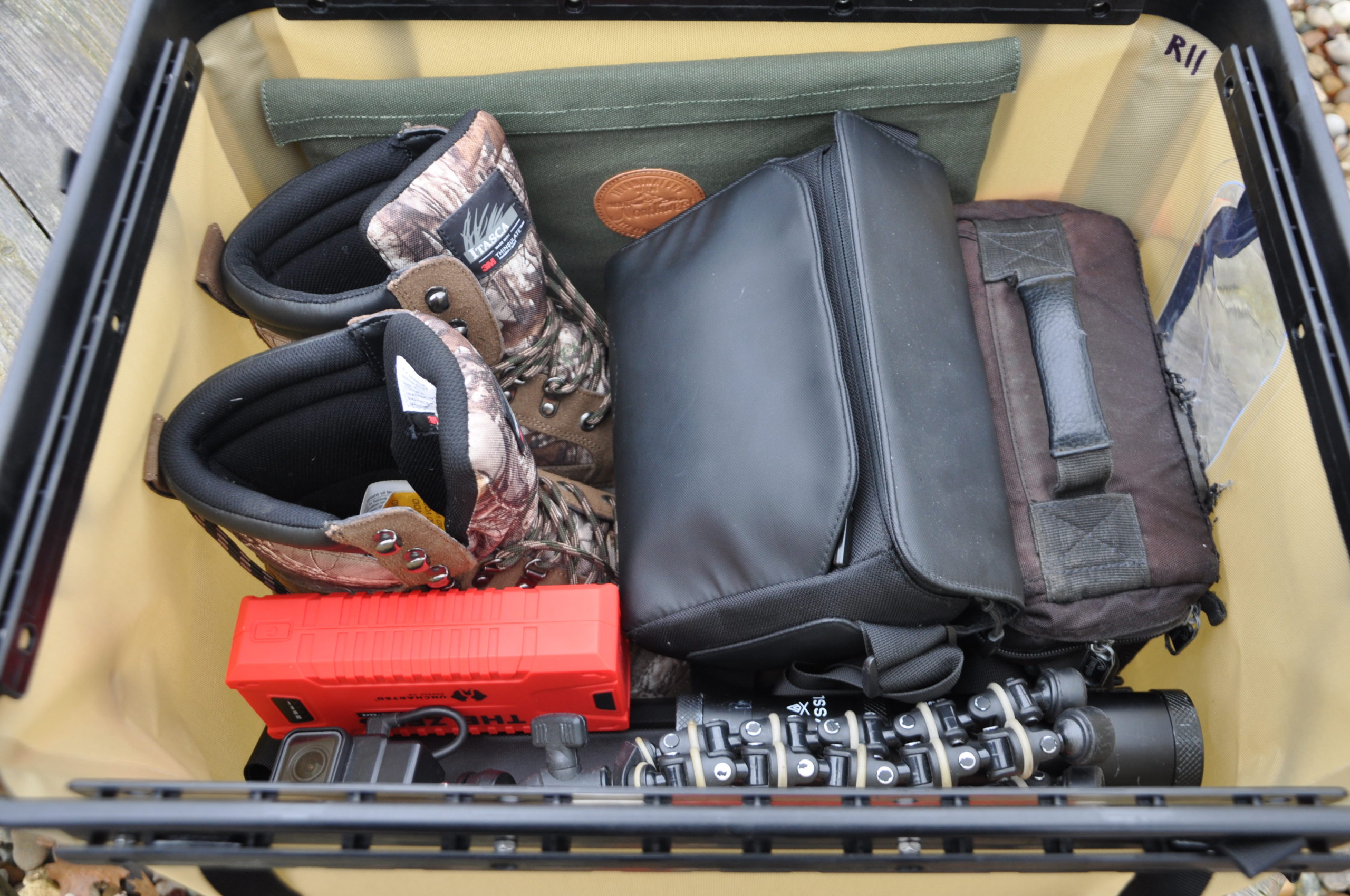
Travis Smola
That's the biggest question and the answer I found, was it does the job quite well. I started vlogging my geocaching adventures on the side a little bit the past couple years. As fun as that is, it was always a pain when I headed out for my next adventure. I'd always inadvertently misplace something and forget about it until I was miles down the road. The Rux fixes that problem in a big way. I can easily store my DSLR, my GoPro, my drone and any extra clothing, boots, and any other gear I may need for the day's trip. That means only one trip to the car and less misplacing of stuff by the day's end.
For the photoshoot for this article, I threw a bunch of random outdoor gear in the bag. This consisted of two flashlights, a pair of hunting boots, a DJI drone, a DSLR camera bag, a portable jump starter, a large axe multi-tool, a GoPro and tripod, and a folding camping grill. Yes, all stuff fit into the Rux WITH room to spare, as you can see from these photos.

Travis Smola
The weight was probably somewhere in the 40-pound range, but it felt like it could handle much more. It was surprisingly easy to transport to my Jeep and back again. I can already tell this bag would be dynamite for hauling camping gear. It would also be much more organized that packing everything loose into my Jeep. One of my least favorite things about camping is re-packing the vehicle and unloading everything when I get home. The Rux would make things much simpler for all the little camping odds and ends I have floating around the garage.
We're intrigued by this storage system.
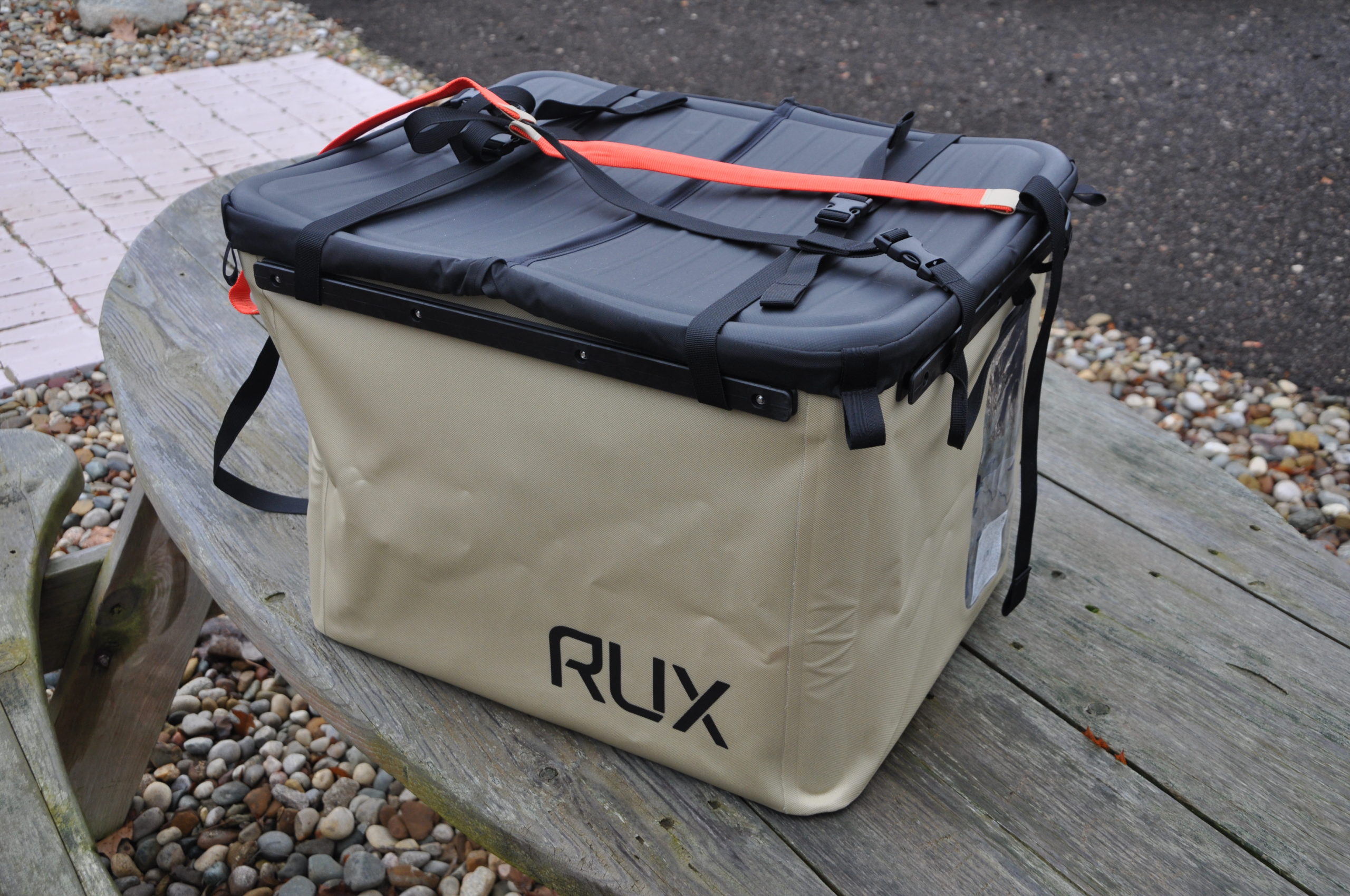
Travis Smola
Again, we must stress that the Rux we got to test was a prototype. We didn't really have a chance to test the durability or how weatherproof it is, but imagine it will hold up well based on what we've seen so far. We're not sure what may change between now and the final product, but what was there seemed to be great quality. As we noted earlier, the only real issue we had was one of the corners not popping and staying open the way it should. You can see this in some of the photos I've posted here. However, we also imagine this issue will be fully ironed out in the final version. It didn't even really affect stuffing the Rux with gear and carrying it to and from my next adventure.
A sustainable, easy-to-use storage system for all the gadgets and tools we've gathered over the years? Sign us up. We're a little bummed we must return it for the next tester. If you're looking for a better way to transport, the Rux may be just the ticket.
Rux started out a crowdfunding project, easily surpassing their IndieGoGo goal just a few days ago. It's the place where you can pre-order the Rux. For more information, see the Rux website: http://www.rux.life
For more outdoor content from Travis Smola, be sure to follow him on Twitter and check out his Geocaching and Outdoors with Travis YouTube channels.
NEXT: THE AXIS DEER AND HOW THEY'RE IMPACTING PARTS OF THE UNITED STATES
WATCH



